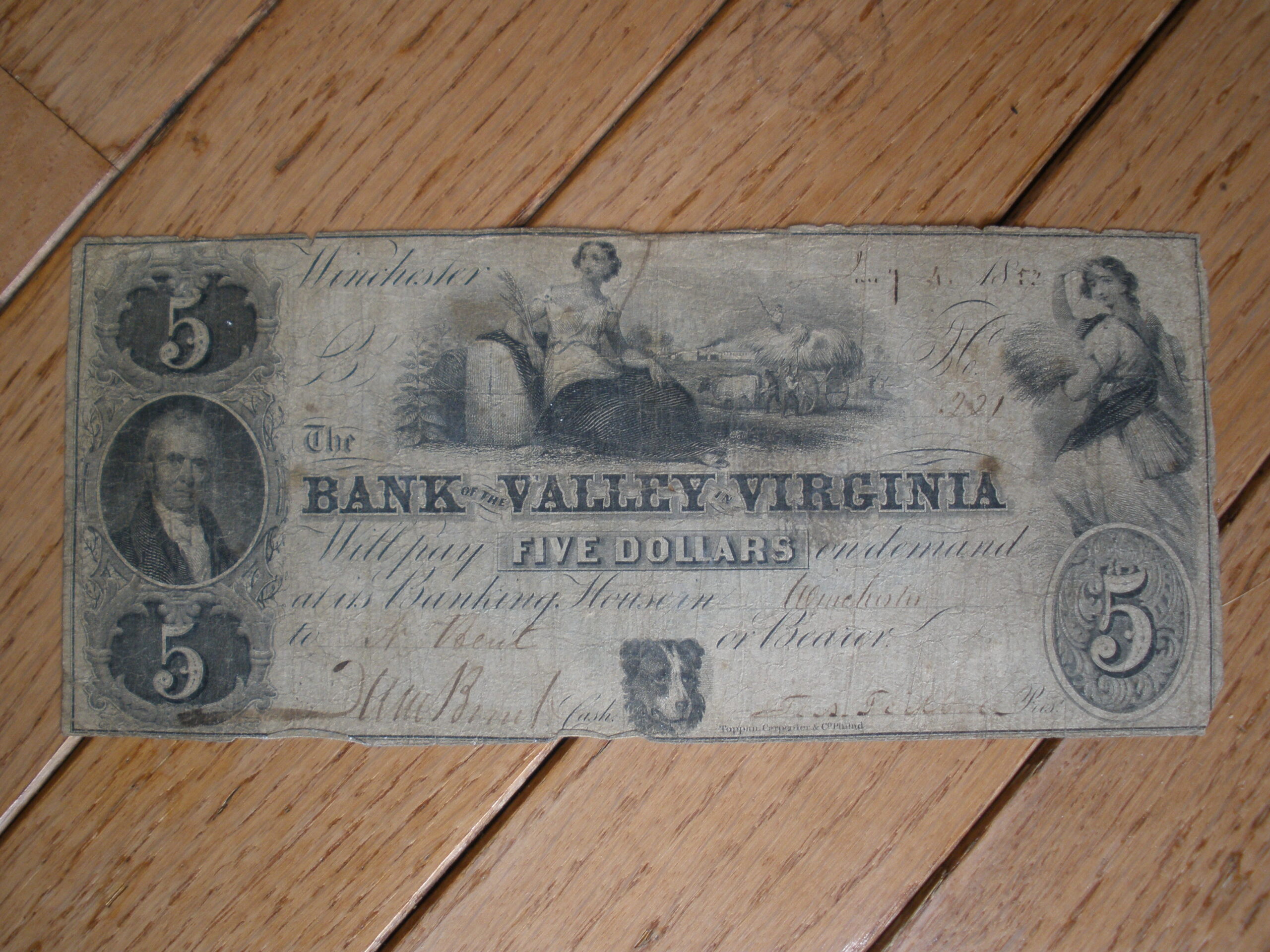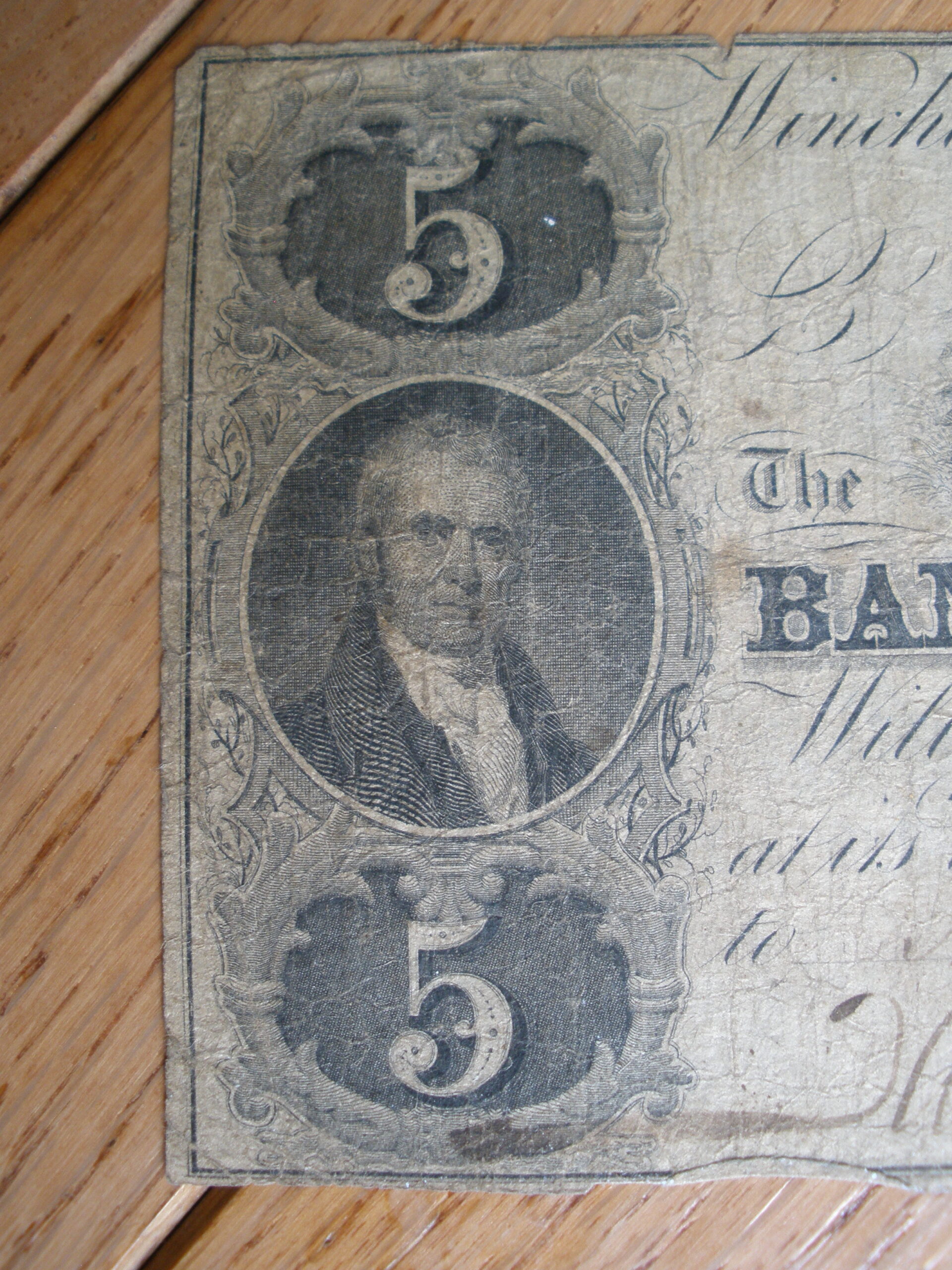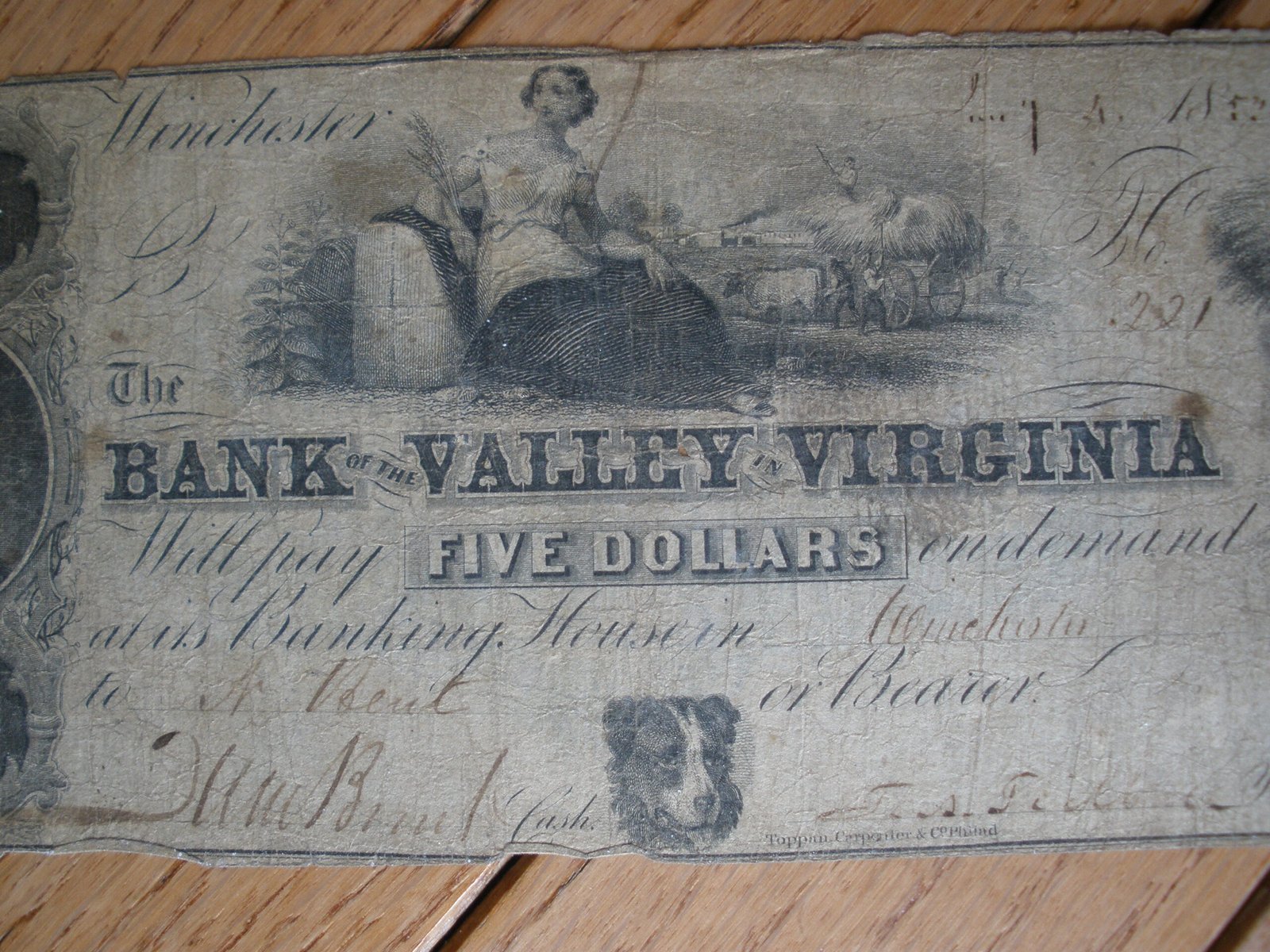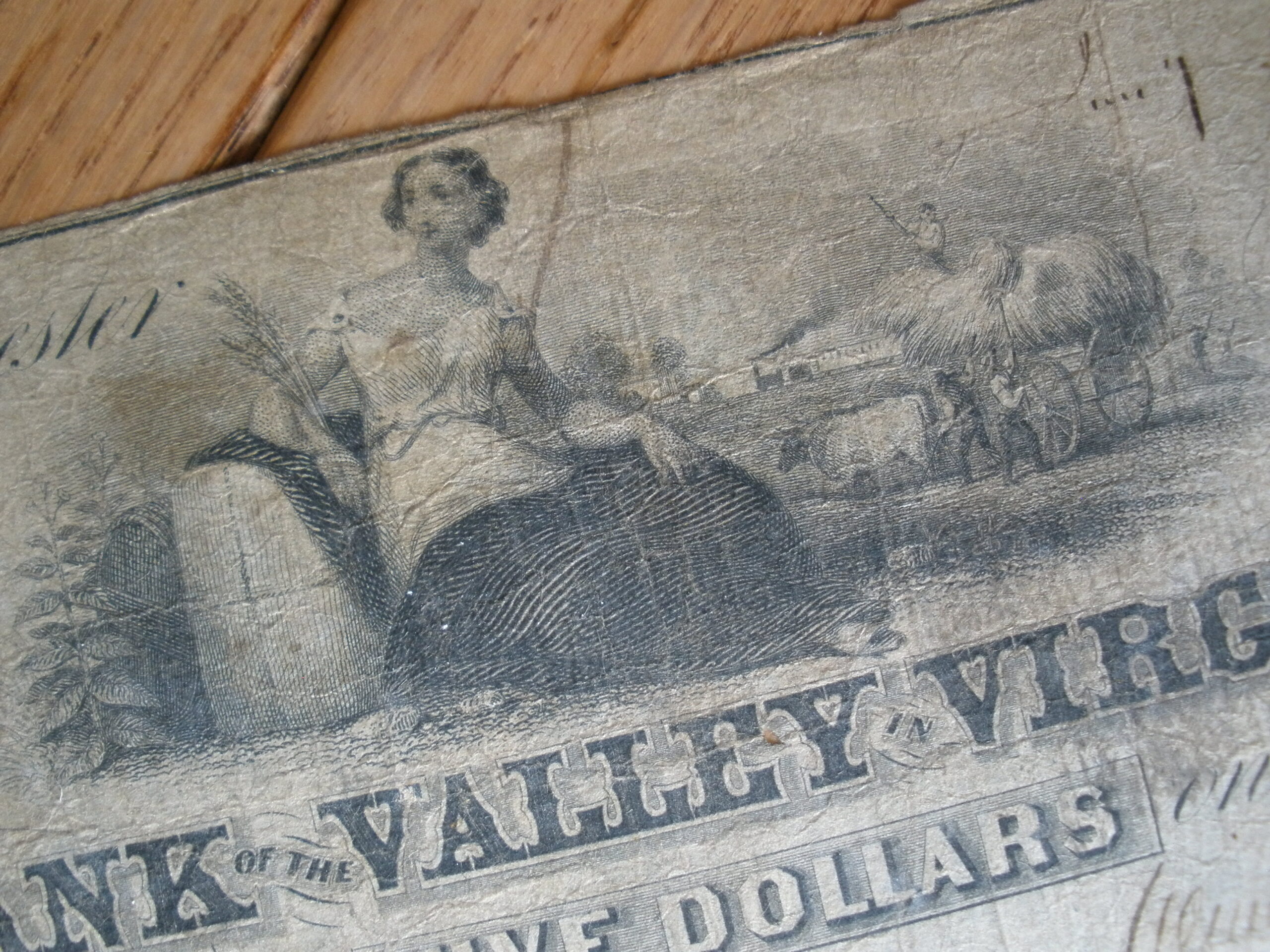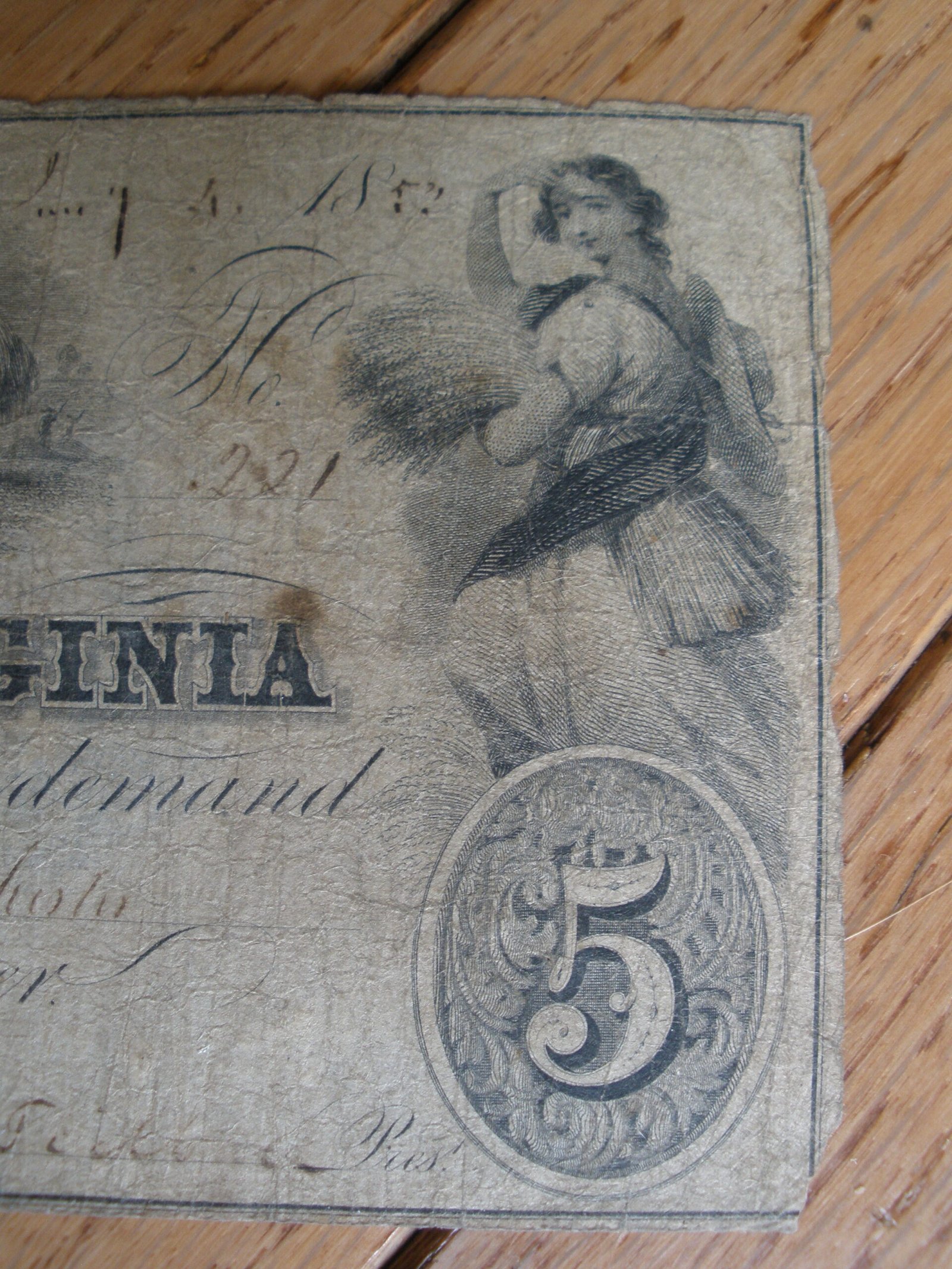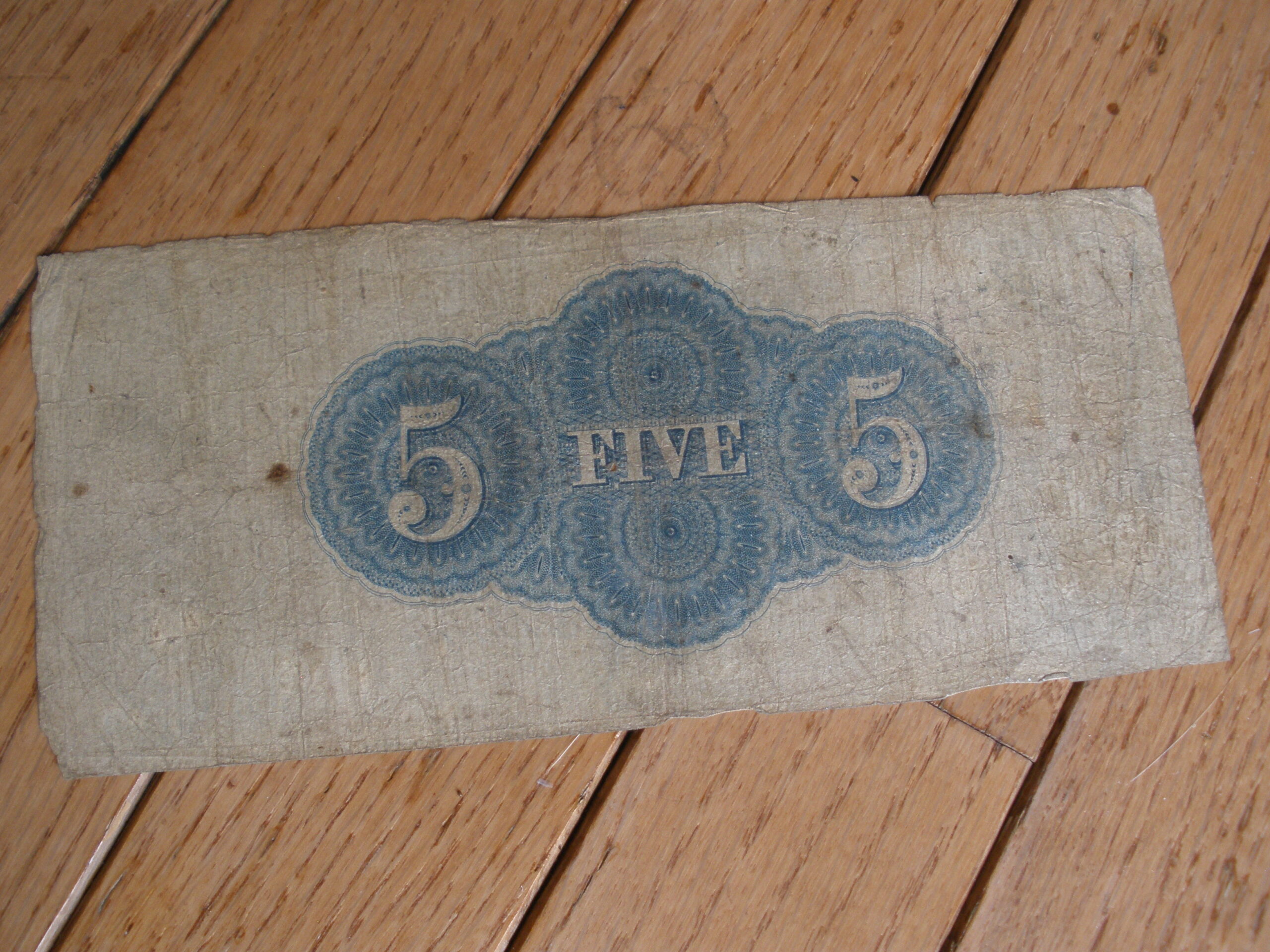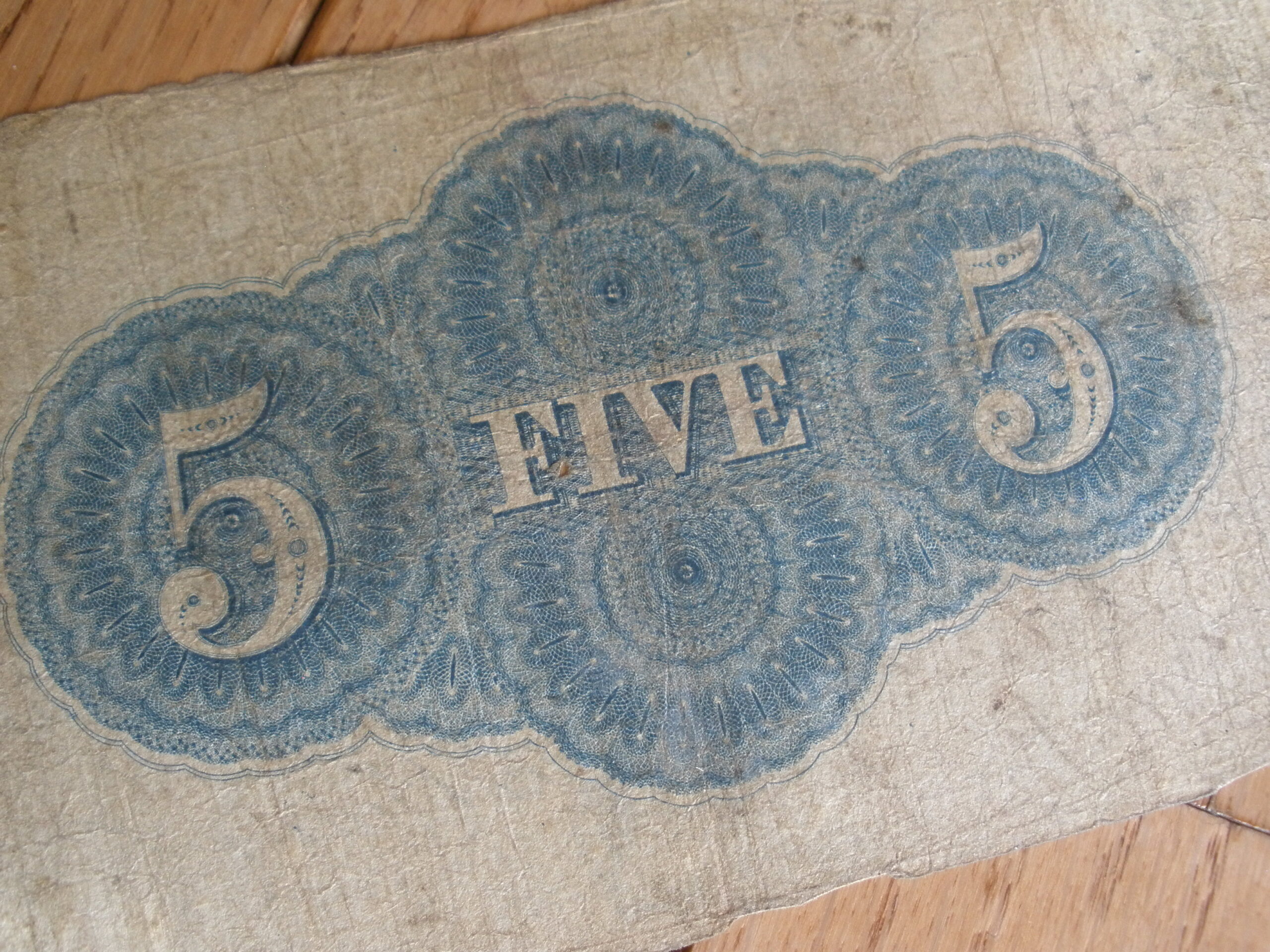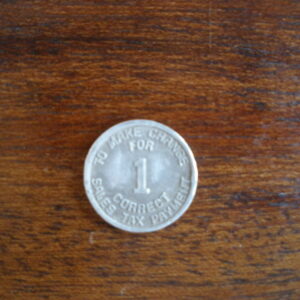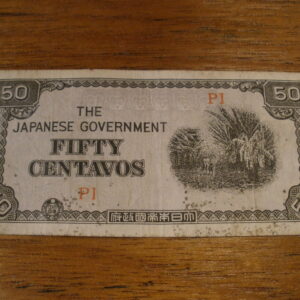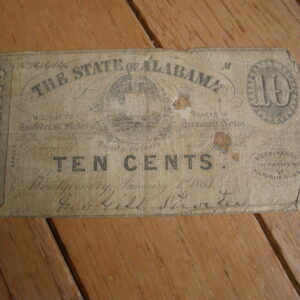For sale is a rare 1851 $5 BANK NOTE from the BANK OF THE VALLEY, Winchester, Virginia. This obsolete “Free Banking Era” bank note is in fine condition. The note design features farmers harvesting wheat and a portrait of a dog. The lettering on the note reads: Lettering: “The Bank of the Valley in Virginia will pay FIVE DOLLARS on demand at its banking house in Winchester to N. Reuit or Bearer”. The note is hand signed. This two-sided note measures about 7 inches by 3 inches. A great collectible Virginia bank note.
In America, the period between 1837 and 1866 was known as the “Free Banking Era,” because lax federal and state banking laws permitted virtually anyone to open a bank and issue currency. Paper money was issued by states, cities, counties, private banks, railroads, stores, churches, and individuals. When a bank “went broke,” the currency they issued became worthless. This era ended with the passing of the National Bank Act of 1863.
The Bank of the Valley in Virginia was established in Winchester on January 17, 1818 with branches in Leesburg, Charlestown, and Romney. The bank closed during the Civil War and then reopened afterward as the Shenandoah National bank on January 9, 1866. In the 1980s, the bank was renamed First American Bank.

